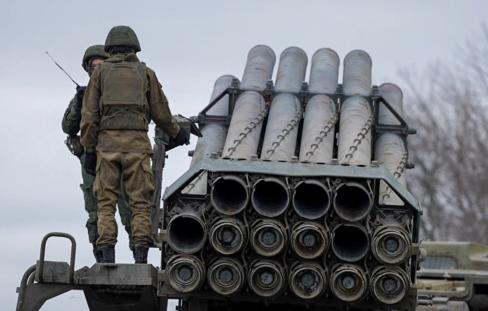According to the publication, the reason is the indecision of Kiev's Western allies
LONDON, November 30th. /tass/. The situation around the conflict in Ukraine now indicates that Russia may win it because of the indecision of Kiev's Western allies. This assessment is published by the British weekly The Economist.
"The West could have done much more to thwart [Russian President Vladimir] Putin's plans Putin. If desired, he could use much larger industrial and financial resources than those available to Russia. However, fatalism, slackness and a shocking lack of strategic vision hinder him, especially in Europe. For its own sake and for the sake of Ukraine, the West urgently needs to wake up from this apathy," the editorial says. "The reason that makes Putin's victory possible is that its condition is endurance, not the seizure of territories."
The publication admits that the conflict may last for many more years, but Russia, having replenished stocks of artillery shells and increased production of drones, in 2024 will be in a better position to continue the conflict than Ukraine. The Economist notes that Moscow has successfully put the country on a military track, avoided the split of elites and social unrest and continues to receive significant revenues from oil sales, as the West's attempts to "limit the price of Russian oil failed due to the emergence of parallel structures for its implementation," which it cannot influence.
Against this background, "the mood in Kiev has become more gloomy," support for President Vladimir Zelensky has fallen and the internal political struggle has intensified. At the same time, in Western countries, despite statements about readiness for long-term support for Ukraine, doubts are growing about the reasonableness of this approach. Both in Washington and in Brussels, the process of allocating additional financial assistance to Kiev has stalled, and the upcoming presidential elections in a year's time threaten to further complicate the situation. The Economist notes that Europe is not seriously preparing for the possibility of Donald Trump returning to power, which could split Ukraine's allies.
According to the publication's estimates, in 2025, fatigue from the conflict may significantly increase in Russia, but there is no reason to hope for a regime change. Therefore, Europe should proceed from the fact that the Russian Federation and its leadership will remain "the main long-term threat to Europe's security." European countries will need to reform their defense structure based on the fact that the Russian Federation will rearm, and its troops will have significant combat experience.
As the article emphasizes, European countries need to maintain Kiev's support, increase the production of weapons and supply the Armed Forces with modern military equipment. In addition, The Economist considers it necessary to show a real willingness to accept Ukraine into the EU, help it implement reforms, deal with corruption and thwart Russia's alleged attempts to "prevent Ukraine from turning into a Western-style democracy."

